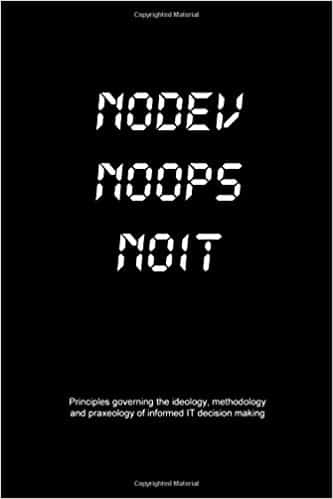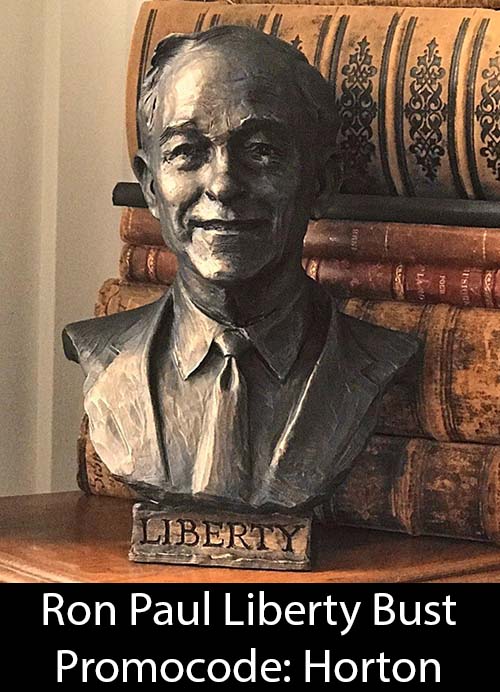Jeff Stein April 21, 2009 2:20 AM
The tremendous interest in my story yesterday about a 2005 NSA wiretap picking up California Democratic Rep. Jane Harman conversing with a suspected Israeli agent took me by surprise, frankly.
It’s always gratifying to find so many people paying attention to things like this when Carrie Prejean is only a click away.
The first thing I want to dispel, though, is the apparently widespread notion that the timing of my story Monday was somehow related to: (1) the upcoming trial of former AIPAC lobbyists Steve Rosen and Keith Weissman; (2) the raging debate over the NSA’s warrantless wiretaps, (3) the Justice Department/CIA’s torture memos; (4) anything else.
More on that later.
But first, The New York Times weighed in Monday night, confirming my story in all important aspects and moving it forward a notch.
Here’s the lede from Neil A. Lewis and Mark Mazzetti:
‘One of the leading House Democrats on intelligence matters was overheard on telephone calls intercepted by the National Security Agency agreeing to seek lenient treatment from the Bush administration for two pro-Israel lobbyists who were under investigation for espionage, current and former government officials say.’
Note: That’s their own sources they’re referring to, I guess, not mine, since there’s no reference to my own story ”” yet.
And they go on, filling in the back story:
‘The lawmaker, Representative Jane Harman of California, became the ranking Democrat on the House Intelligence Committee after the 2002 election and had ambitions to be its chairwoman when the party gained control of the House in 2006.’
Here, it’s important to remember that Harman absolutely denied every aspect of my story, calling it a ‘recycled canard’ dredged up by people ‘who should be ashamed of themselves.’
But the Lewis and Mazzetti dug around and found the same thing I did, tapes and all:
‘One official who has seen transcripts of several wiretapped calls said she appeared to agree to intercede in exchange for help in persuading party leaders to give her the powerful post,’ they wrote.
‘One of the very few members of Congress with broad access to the most sensitive intelligence information, including aspects of the Bush administration’s wiretapping that were disclosed in December 2005, Ms. Harman was inadvertently swept up by N.S.A. eavesdroppers who were listening in on conversations during an investigation, three current or former senior officials said.’
Here again, they add: ‘It is not clear exactly when the wiretaps occurred; they were first reported by Congressional Quarterly on its Web site.’
True enough, but it muddies the issue of whether The Times found its own sources, or if it’s alluding here to mine. But Lewis and Mazzetti seem to be saying they independently confirmed my reporting.
They reinforce that idea with this:
‘The official with access to the transcripts said someone seeking help for the employees of the American Israel Public Affairs Committee, a prominent pro-Israel lobbying group, was recorded asking Ms. Harman, a longtime supporter of its efforts, to intervene with the Justice Department. She responded, the official recounted, by saying she would have more influence with a White House official she did not identify.’
Now, the ‘White House official’ was new to me. I’d reported that Harman said she would try to persuade lesser Justice Department officials to reduce the charges against Rosen and Weissman, scheduled for trial in June.
Read the rest of The Times story here.
Now comes Foreign Policy‘s daunting and extremely well-sourced Laura Rozen, who adds important confirmation to a critical background detail in my story.
‘A former intelligence official familiar with the matter told Foreign Policy on condition of anonymity Monday that Goss had been asked due to the unavailability of FBI director Robert Mueller to certify a FISA warrant that was seemingly triggered by a captured communication between Harman and someone who was already being surveilled by the U.S. government (presumably, the suspected ‘Israeli agent’). Â Furthermore, the former intelligence official said, longstanding protocol involving the separation of powers required that when intelligence exists that includes a member of Congress, that the heads of the body in which that member sits, in this case, the top Republican and Democratic in the House of Representatives, then House speaker Denny Hastert (R-IL) and minority leader Nancy Pelosi, (D-CA) be informed.’
‘It’s hard, at this point, to know what to make of the allegations,’ The National Interest’s Jacob Heilbrunn writes, understandably, at Huffington Post.
‘That Harman, who did not become intelligence committee chair, would risk her reputation and career seems implausible. But wackier things have happened in Washington.’
Yes indeed, it’s been that way since Bill Clinton took a bite of Monica Lewinsky‘s pizza a dozen years ago.
Wired‘s Kim Zetter really put her finger on what fascinated me about this story from the beginning.
‘Those who have long felt there was a suspicious back story behind Congress’s support of the Bush administration’s warrantless wiretapping may feel their suspicions are closer to being confirmed this week.’
But of the all aggregations of the exploding coverage, the best may belong to Glenn Greenwald, the gifted legal analyst over at Salon.com, in my opinion.  He and I have had our differences on some national security/civil liberties issues, but to me he’s always articulate, thorough and thought-provoking ”” one of the best on the Web at dissecting the Bush Justice Department’s tortured memos on interrogation limits (or lack thereof), in my opinion.
In Monday’s blog Greenwald offered a useful reminder.
‘Back in October, 2006, [Time’s Tim Burger]Â reported that the DOJ and FBI were investigating whether Harman and AIPAC Â ‘violated the law in a scheme to get Harman reappointed as the top Democrat on the House intelligence committee’ and ‘the probe also involves whether, in exchange for the help from AIPAC, Harman agreed to help try to persuade the Administration to go lighter on the AIPAC officials caught up in the ongoing investigation.’ Â So that part has been known since 2006.’
He then offers this necessary context, which I only touched on:
‘[A]s I’ve noted many times, Jane Harman, in the wake of the NSA scandal, became probably the most crucial defender of the Bush warrantless eavesdropping program, using her status as ‘the ranking Democratic on the House intelligence committee’ to repeatedly praise the NSA program as ‘essential to U.S. national security’ and ‘both necessary and legal.’ Â She even went on Meet the Press to defend the program along with GOP Sen. Pat Roberts and Rep. Pete Hoekstra, and she even strongly suggested that the whistleblowers who exposed the lawbreaking and perhaps even the New York Times (but not Bush officials) should be criminally investigated, saying she ‘deplored the leak,’ that ‘it is tragic that a lot of our capability is now across the pages of the newspapers,’ and that the whistleblowers were ‘despicable.’ Â And Eric Lichtblau himself described how Harman, in 2004, attempted very aggressively to convince him not to write about the NSA program.’
In relation to that, The Plum Line‘s Greg Sargent claimed to find something for one nanosecond that ‘deals the story a blow.’
Sargent called Times editor Bill Keller to ask whether, as I reported, Jane Harman had tried to kill the warrantless wiretapping story.
Good idea, actually.
‘Ms. Harman,’ Keller told Sargent through a spokeswoman, ‘did not influence my decision. I don’t recall that she even spoke to me.’
I direct Sargent to this passage in the Times’ own story today:
‘Bill Keller, the executive editor of The Times, said in a statement Monday that Ms. Harman called Philip Taubman, then the Washington bureau chief of The Times, in October or November of 2004. Mr. Keller said she spoke to Mr. Taubman ”” apparently at the request of Gen. Michael V. Hayden, then the director of the National Security Agency ”” and urged that The Times not publish the article. ‘She did not speak to me,’ Mr. Keller said, ‘and I don’t remember her being a significant factor in my decision.’
But then Lewis and Mazzetti add:
‘Shortly before the article was published more than a year later, in December 2005, Mr. Taubman met with a group of Congressional leaders familiar with the eavesdropping program, including Ms. Harman. They all argued that The Times should not publish.’
Meanwhile, there seemed to be as much interest in the timing of my story as the facts in it.
Some journalists poked through the entrails and came away certain that my story ‘surfaced’ now to effect the upcoming Rosen-Weissman trial or, for Ron Kampeas at Capital J, Harman’s dissent on waterboarding.
No-it-wasn’t.
I was asked about it a couple of times during an online chat Monday at CQ Politics.
Claire from Washington DC:Â Why are your sources coming forward now? There must be some reason why they have waited almost three years.
Me:
Thanks. I’ve seen a lot of speculation about that online. The fact is, there is no ‘timing’ to any ‘leak.’ No sources ‘came forward,’ so to speak. I learned about this quite a while ago and was just recently able to turn my full attention to it. Total coincidence.
Sandy from Brooklyn: Why is all this stuff coming out now?
Me: No special reason. The story was not ‘planted’ on me to influence any other events ”” in particular the looming AIPAC trial or things related to the NSA’s warrantless wiretapping program. I’ve known about it for some time but just not been able to pull it together until now for various reasons.
I also discussed this, and other background on my story, on Glenn Greenwald’s Podcast.
Where does it go from here?
‘I think it’s safe to say that investigations will be underway shortly,’ blogger Ataru ventured at the Blog for Democracy.
If he means a Justice Department or congressional investigation, I doubt it.
People: Jane Harman is a Democrat. Last time I checked, the White House and Congress were in the hands of the Democrats.
And tell me this: How will the Republicans reopen this can of worms when one of their own wriggling at the bottom is Alberto Gonzales?
They can’t.
My CQ colleague David Corn tried to tease something out of White House spokesman Robert Gibbs at Monday’s daily feeding.
But alas, Corn wrote:
‘Gibbs did not choose me for a query today. Even so, he might have only reiterated some version of the time-to-look-ahead-not-behind mantra the White House has been making much use of lately. Here is yet one more reason—beyond the torture memos and the firings of the US attorneys—for the internal investigators of the Justice Department to focus their attention on the fellow who ran the department for George W. Bush.’
But, this being Washington, fear not: Someone will investigate something somehow.
As Corn noted:
‘One DC watchdog is calling for an investigation. Citizens for Responsibility and Ethics in Washington on Monday afternoon requested a congressional ethics inquiry. CREW‘s executive director, Melanie Sloan, told Mother Jones, ‘She was willing to use a criminal investigation as a tool just to get a chairmanship. Obviously there’s political gamesmanship on Capitol Hill, but it has to end before you get to the Grand Jury store. That’s really beyond the pale.”
CREW announced it had ‘faxed a request to the Justice Department asking for an investigation of what happened with Gonzales and the initial Harman investigation.’














